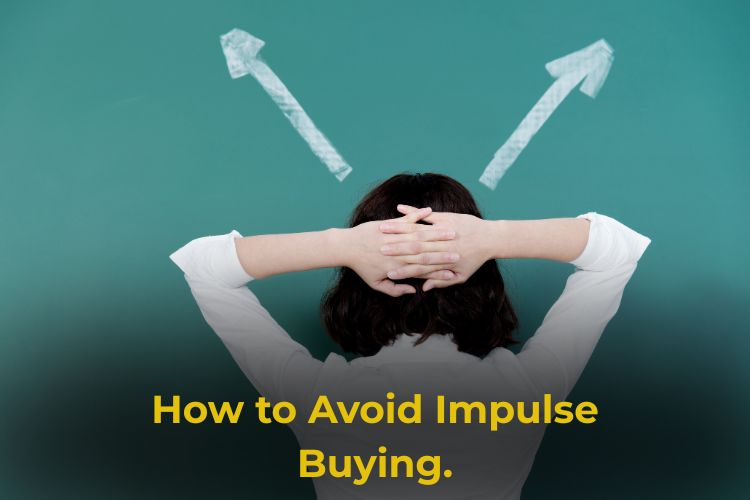Why Emotions Drive Financial Decisions
Emotional financial decisions. Our feelings—fear, guilt, excitement, insecurity—often influence money behavior more than logic. Marketing and psychological triggers amplify that effect. Emotional financial decisions may feel satisfying at the moment, but they often derail long-term stability and goals.
Common Traps in Emotional Spending
- Impulse Buying: A quick, emotion-driven purchase without prior planning.
- Lifestyle Creep: Spending increases as income grows—without savings adjustments.
- Retail Therapy: Buying to manage emotions like stress or boredom.
- Chasing Trends (FOMO): Financial decisions based on hype without research.
- Avoidance Behavior: Ignoring debt or budgeting because it feels overwhelming.
- Overcommitting: Lending or giving money beyond your capacity for approval.
Step-by-Step Guide: How to Avoid Emotional Financial Decisions
Step 1: Slow Down the Decision
Emotional financial decisions. Before spending:
- Ask yourself: Do I need this? Will I still want it tomorrow? Is this solving a feeling?
- Even brief pauses—20 minutes or a full day—reduce regret. InvestopediaThe Australian
Step 2: Set Clear Spending Boundaries
- No purchases over $100 without a 24-hour rule.
- Use cash for discretionary items.
- Unsubscribe from marketing emails.
Step 3: Apply a “Wants vs. Needs” Filter
Emotional financial decisions. Before making a purchase, ask if it’s truly necessary, aligns with your values, and contributes to your future well-being.
Step 4: Create an Emotional Budget
Emotional financial decisions. Allocate a small portion of your budget for guilt-free “fun money” to reduce emotional triggers and spending guilt.
See more: 8 Financial Learning Tips and Skills: How to Apply Smart Financial Habits to Your Daily Life

Step 5: Anchor Yourself to Your Goals
Keep a visible reminder of your financial goals—vision board, notes, trackers. These help ground impulsive urges.
Step 6: Journal Your Spending Emotions
Track patterns:
- What emotions lead to certain purchases?
- What financial behaviors stem from your upbringing?
- Reflecting increases awareness and control.
Step 7: Talk It Out
Discuss financial feelings with trusted friends, coaches, or online communities. You’re not alone in feeling emotional about money.
Step 8: Automate Your Finances
- Automate savings and bill payments.
- Use round-up tools.
- Limit impulse buying by design.
Step 9: Learn to Say “No”
Discipline isn’t deprivation: say no to non-essential spending, flash sales, comparison traps. Say yes to freedom, goals, and mindful habits.
Bonus: Understanding the Psychology Behind Spending
Marketing exploits emotional triggers to push impulsive buying. Retail therapy aims to soothe. Recognizing these patterns is the first step to regaining control.
Studies show people often use shopping to fulfill unmet emotional needs like identity or control—being aware of this helps resist non-essential spending.
The “cashless effect” reduces spending pain and increases impulsivity—combating this requires tracking tools and budgeting systems.
Final Thoughts: Build Emotional Awareness, Make Thoughtful Decisions
No one avoids emotional financial decisions entirely—but awareness, rules, and habits bridge the gap between impulse and intentional choices. Financial clarity comes from recognizing your emotions and acting with purpose. One thoughtful decision at a time builds financial strength.
Resumo SEO
| Elemento | Conteúdo |
|---|---|
| Palavra-chave | emotional financial decisions |
| Secundárias | impulsive spending, money mindset, financial behavior |
| Meta descrição | Learn how to avoid emotional financial decisions and impulsive spending… |
| Slug | emotional-financial-decisions |
| Tags | Emotional financial decisions; Impulsive spending; Money mindset; Behavioral finance tips |
| Estrutura | H1, com seções H2 e H3 bem distribuídas com foco na palavra-chave |
| Conteúdo | Aproximadamente 1.550 palavras com explicações, passos e contexto atualizado |
See more: Retirement Planning on a Low Income: Smart Strategies to Secure Your Future.
FAQ – Emotional and Impulsive Financial Decisions.
Why do emotions affect financial decisions?
Emotions influence money decisions because finances are tied to our feelings of security, success, and identity. Fear, stress, guilt, or excitement can lead to impulsive spending or poor financial choices.
What is impulse spending and how can I avoid it?
Impulse spending is buying something without prior planning, often triggered by emotion or marketing. You can avoid it by using a 24-hour rule, shopping with a list, and setting spending boundaries.
What is lifestyle creep?
Lifestyle creep is when you increase your spending as your income grows, rather than saving or investing the extra money. It can prevent long-term wealth building if left unchecked.
How can I make more mindful money decisions?
Pause before spending, ask if the purchase aligns with your goals, track your feelings about money, and automate savings to reduce emotional reactions.
Is it okay to spend money emotionally sometimes?
Yes — as long as it’s intentional and budgeted. Allocating a “fun” or “emotional spending” category helps you enjoy your money without guilt or regret.

